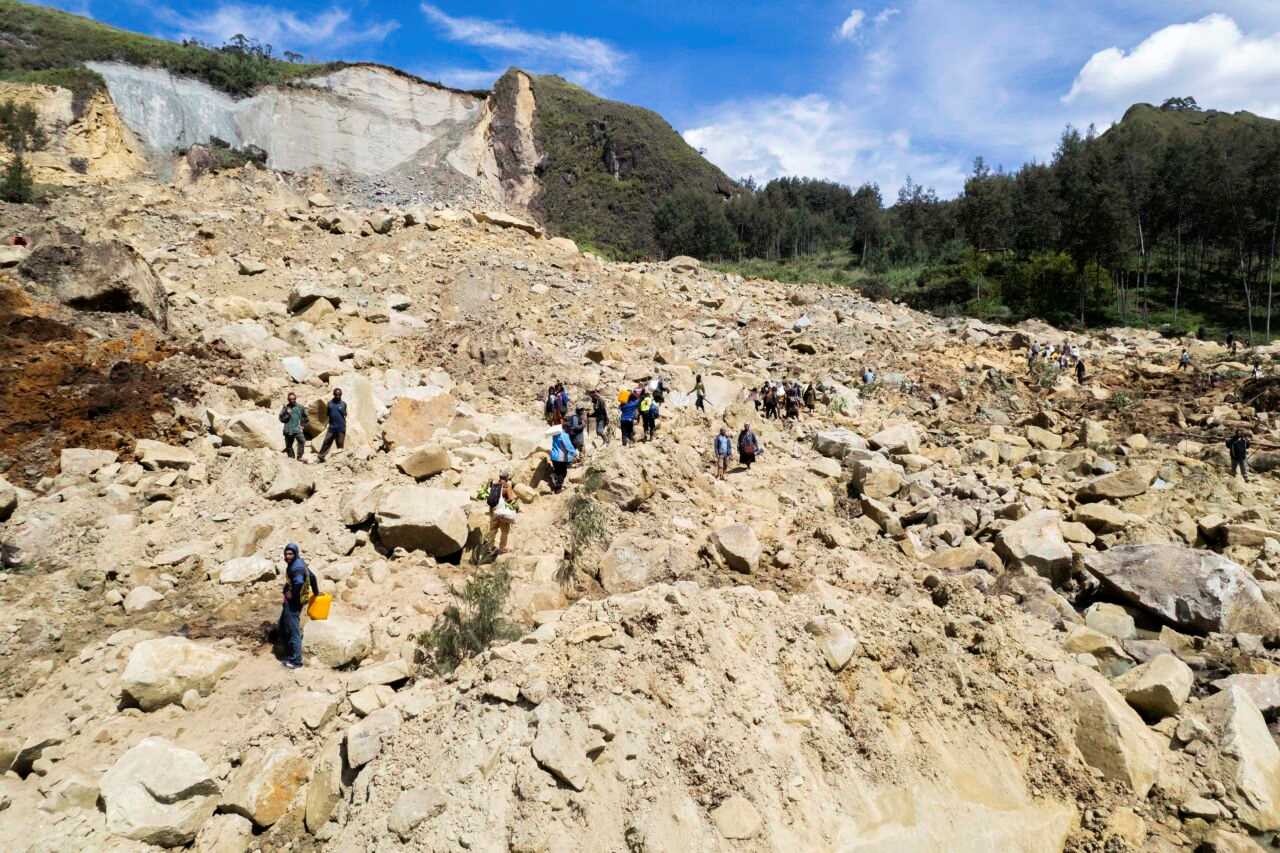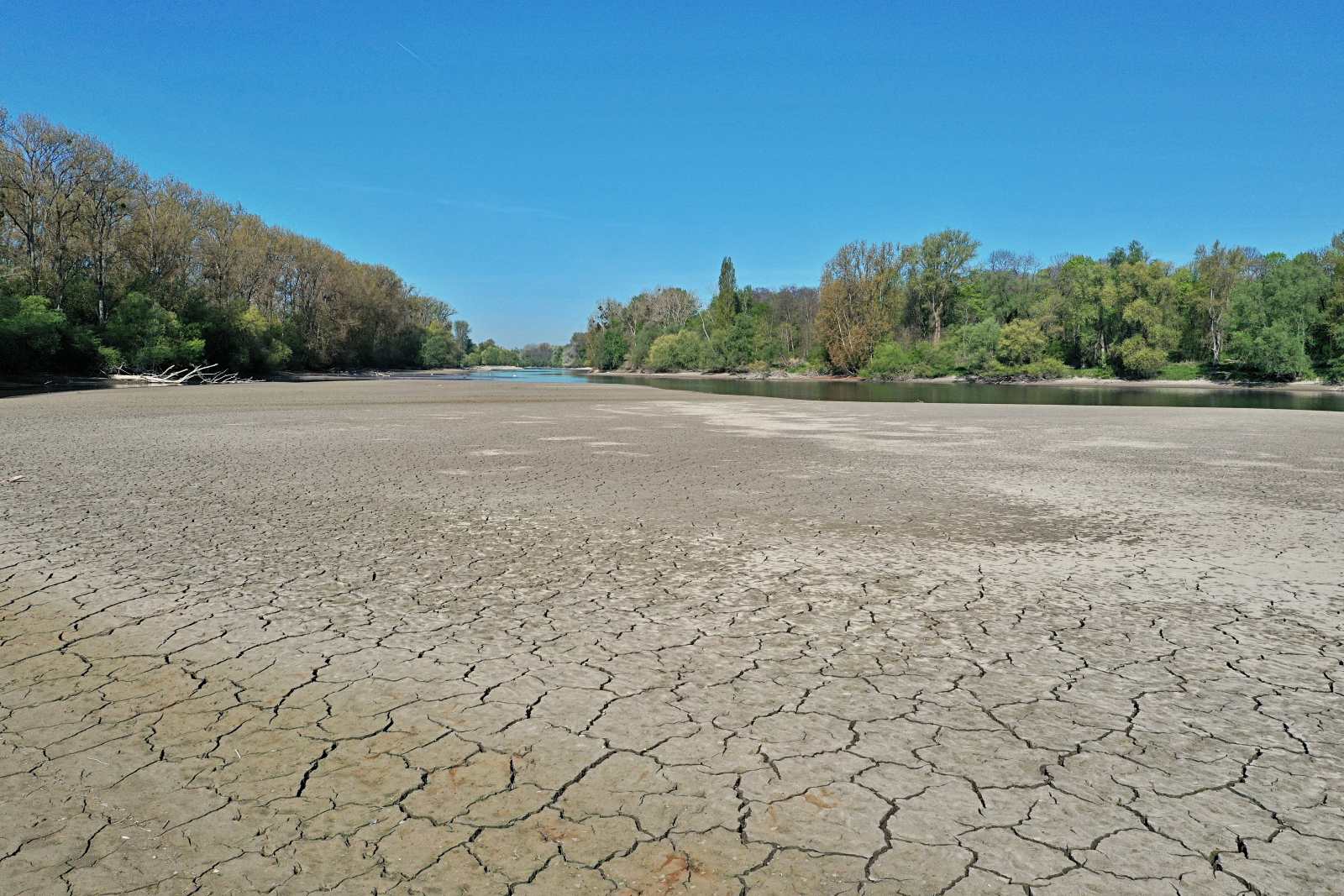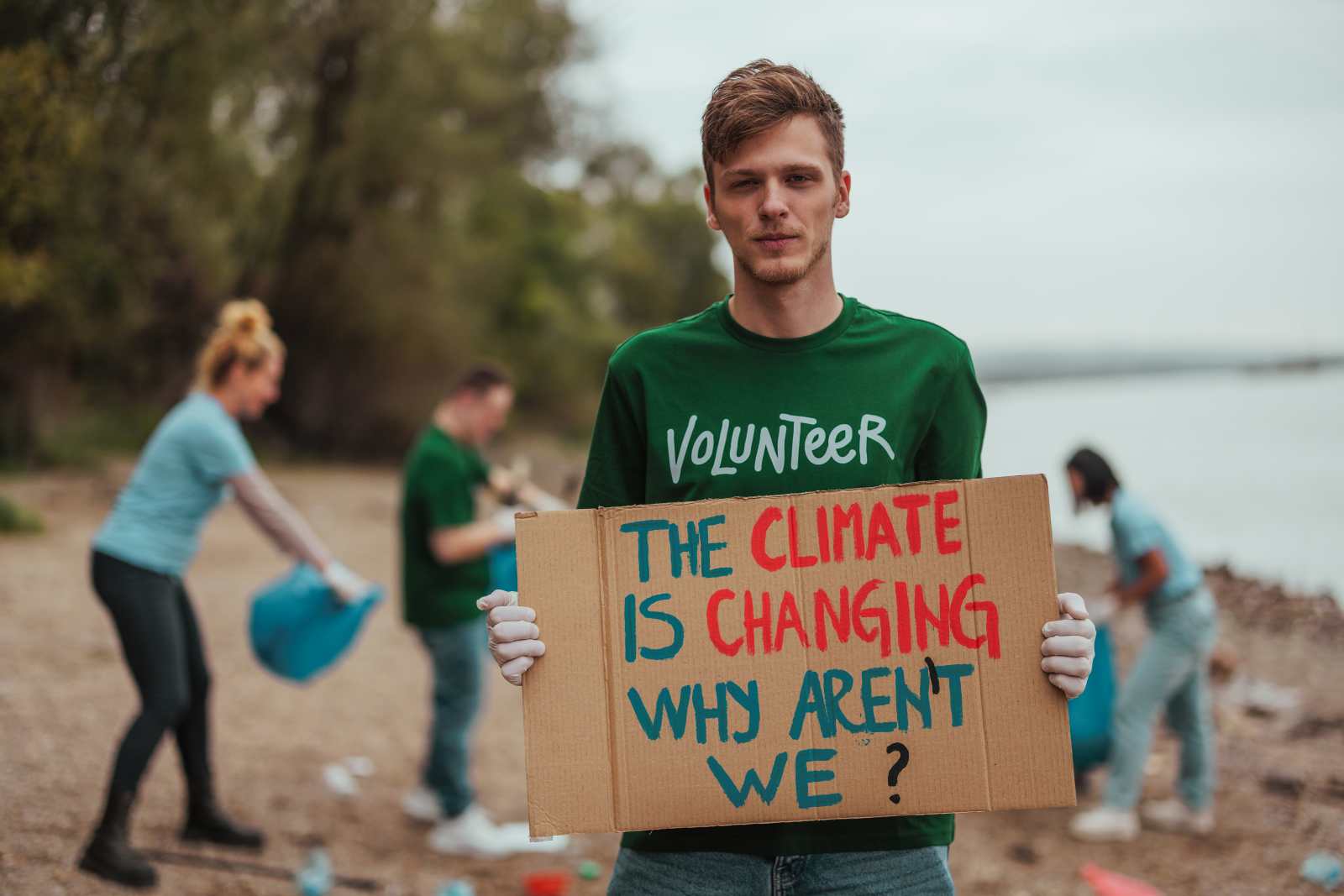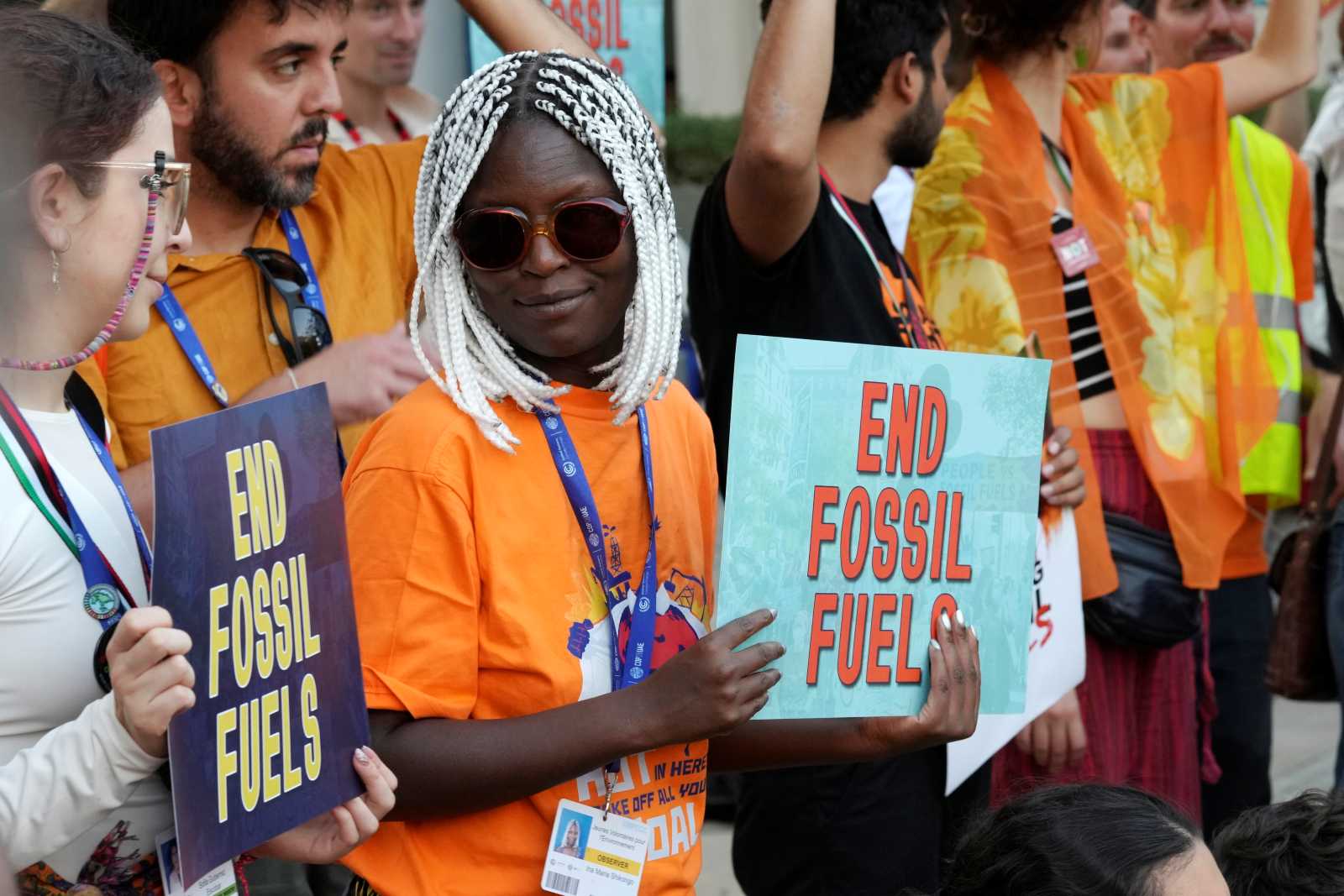Investigative research
The profitable business of climate disinformation

When most people think of climate disinformation, they envision outright denial that climate change exists or is caused by humans. While this does exist, the current landscape is far more nuanced, as research by Global Witness, the investigative human-rights organisation, shows.
Our Digital Threats to Democracy team is looking at how social-media companies deal with disinformation, hate speech and other worrying things happening online. At Global Witness, investigations take many forms, from undercover, data-led or traditional “follow-the-money” inquiries, to digital investigations. For the past year, we ran a dedicated Climate Disinformation Unit to investigate how climate disinformation spreads across major social-media platforms like TikTok, YouTube, Facebook, Instagram and X. We found new forms of disinformation stretching well beyond traditional denial, encompassing everything from AI-facilitated greenwashing by major corporations to targeted harassment of climate defenders.
The many faces of climate disinformation
Modern climate disinformation often takes the form of “distract and delay” narratives. These acknowledge that climate change is a problem but argue that other issues take priority. We often hear that net-zero targets are simply too expensive to pursue.
Greenwashing is a key feature of this category. Fossil-fuel companies and other major polluters often heavily promote the small fraction of their business focused on sustainability, while obscuring the environmental damage caused by their primary operations.
One major concern for us is perhaps a less obvious form of climate disinformation. Across social media we are seeing targeted harassment and hate directed at climate scientists, activists and environmental defenders. These are efforts to silence those voices we need to hear from the most.
AI’s complex role in climate disinformation
Tech platforms are increasingly integrating generative AI tools into search engines and messaging services. As these tools become widespread, they also shape how people access information about climate change. We found that artificial intelligence already plays a role in disseminating climate disinformation. However, not necessarily in the ways we expected.
We wanted to find out how four major chatbots respond to climate related queries. So, our Climate Disinformation Unit investigated Open AI’s ChatGPT, X’s Grok, Google’s Gemini and Meta AI. While none engaged in outright climate denial, some amplified greenwashing, especially when asked about specific oil and gas companies. These systems often quoted directly from fossil fuel companies’ websites and press releases, adding a seemingly neutral and authoritative veil to corporate messaging.
In one instance, Meta AI described the French multinational energy and petroleum company TotalEnergies’ “commitment to sustainability” as “evident”. In another it characterised BP as “working towards helping the world reach net zero.” In contrast, X’s Grok took a more critical approach in its “fun mode”, describing Shell’s role at climate conferences as “a bit like inviting Dracula to a blood drive.”
As online experiences are increasingly filtered through these systems, it is crucial that we make sure that generative AI tools promote access to reliable information. Investigations are a key tool to hold companies accountable.
The profitable business of climate denial
The engagement-based business model of major tech platforms, where clicks, likes, comments and views are the ultimate currency, is making climate disinformation a good way to make money. Platforms like YouTube, Facebook, Instagram or TikTok profit from keeping users online longer to show them more advertisements. In return, they share their advertisement profits with influencers to create even more content and ultimately engagement. Research consistently shows that content provoking anger and outrage generates the highest engagement rates. Disinformation and conspiracy are very effective at triggering these emotional responses.
What we found is that a well-known climate disinformation spreader was using this system to generate vast profits – for themselves and the tech platforms. In one investigation, we looked at the Epoch Times. It was created as an alternative media outlet by followers of the Falun Gong religious movement. Since the beginning of the century, it has platformed known climate deniers and amplified far-right views. The New York Times once described it as operating a “global-scale misinformation machine”. Yet, the organisation continues to benefit from the digital advertising system.
Our Climate Disinformation Unit’s estimations suggest that Google ads running on Epoch Times webpages generated approximately $ 960,000 for The Epoch Times and $ 450,000 for Google in just one year. Tech platforms are creating financial incentives for spreading emotive rather than informative content, climate regulations are facing a backlash, and fact-checking programmes are being scaled back. Caught in this dangerous mix, we are all likely to face even more disinformation in the future.
Targeting climate defenders
Climate disinformation increasingly targets those working to defend the environment and promote climate action. Our own poll, conducted together with YouGov, revealed that approximately half of climate scientists who had published more than 10 papers, experience abuse and harassment online. These attacks at times include violent threats, are frequently gendered and lead to serious mental-health consequences. In the end they discourage scientists from speaking out about their work and for climate action, making it easier for vested interests to delay much needed climate action.
Prior to COP29 last November, our Climate Disinformation Unit uncovered another approach to drowning out criticism. In the lead up to the annual climate conference our team monitored the official COP29 hashtags on X. The conference was held in Baku in Azerbaijan, a petrostate with a terrible human rights record. Initially there was much scepticism and criticism being voiced. The criticism was warranted: just days before the opening of the conference, another investigation from our fossil fuel campaign caught the COP29 president on tape offering to help broker fossil fuel deals.
As we got closer to the conference, our team noticed a shift in the conversation – it suddenly became very positive about the petrostate host. Across the board Azerbaijan’s official messaging was being amplified. In the end, we uncovered a network of 71 suspicious accounts that did little else but repost official COP29 posts. This created an artificial impression of grassroots support for the controversial host. While this particular operation was unsophisticated – all of these accounts sported similar nature and flower images on their profiles – networks often use much more advanced techniques that make it really hard for independent researchers to detect.
This year’s COP30 is scheduled for Brazil – a country that consistently ranks among the deadliest for climate activists. This is cause for serious concerns about escalating harassment campaigns and attacks on our information ecosystem.
The path forward
By eroding public trust, climate disinformation poses fundamental challenges to climate action. This often-manufactured division makes it harder for the people working at the forefront of climate action to do their work, and it hinders collective action.
The evolution of climate disinformation from outright denial to campaigns of misdirection, harassment and confusion reflects the stakes involved in the climate debate. As the climate crisis intensifies, so too must efforts to identify, understand and counter the forces seeking to undermine climate action through the deliberate spread of false information.
Links
Global Witness, 2024: Greenwashing and bothsidesism in AI chatbot answers about fossil fuels’ role in climate change.
Global Witness, 2024: Scores of suspicious accounts on X promote the Azerbaijan government’s messages on COP.
Global Witness, 2024: Disinformation dollars: How Google earns money from and funds articles that promote climate denial.
Global Witness, 2023: Global Hating: How online abuse of climate scientists harms climate action.
Ava Lee leads a team of investigators, campaigners and communicators that focuses on the impact of technology on climate change and human rights at Global Witness.
digitalthreats@globalwitness.org
This story is part of The 89 Percent Project, an initiative of the global journalism collaboration Covering Climate Now.

















